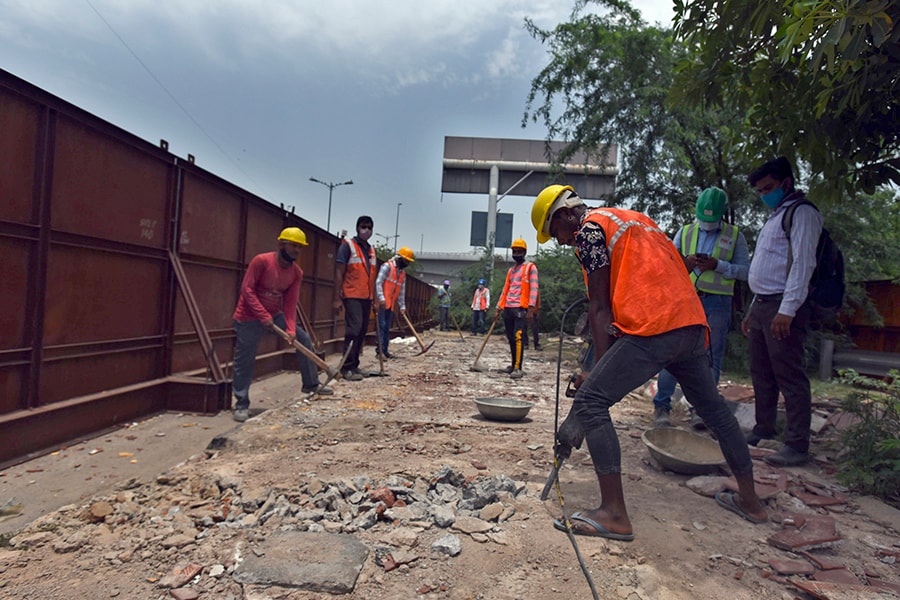
Delhi reopens a crack amid gloomy economic forecast for India
On Monday, India released a new set of numbers that showed the country's economy grew by 1.6% for the three-month period ending in March
 NEW DELHI, INDIA - MAY 31: Labourers working at a constrution site following Covid-19 protocols, near Barapula flyover on May 31, 2021 in New Delhi, India. Delhis factories and manufacturing units reopened on Monday as the Delhi government gradually lifts lockdown restrictions that have been in place since April 20. According to the Delhi governments guidelines for the unlock process, manufacturing and constructions units have been allowed to resume work with staggered working hours to maintain social distancing.
NEW DELHI, INDIA - MAY 31: Labourers working at a constrution site following Covid-19 protocols, near Barapula flyover on May 31, 2021 in New Delhi, India. Delhis factories and manufacturing units reopened on Monday as the Delhi government gradually lifts lockdown restrictions that have been in place since April 20. According to the Delhi governments guidelines for the unlock process, manufacturing and constructions units have been allowed to resume work with staggered working hours to maintain social distancing.
Image: Raj K Raj/Hindustan Times via Getty Images
Delhi is considering relaxing its COVID-19 restrictions six weeks after a devastating coronavirus surge rocked the Indian capital, with a pledge to ramp up vaccinations to protect the city’s more than 20 million people from another wave.
But the vow came after a weekend in which city officials were forced to close vaccination centers for lack of supply, a problem plaguing the entire country as the coronavirus continues to spread. India does not have the vaccine manufacturing capacity to inoculate a big portion of its population anytime soon, while the prospect of importing new supplies from abroad has bogged down amid squabbling between the central and local governments.
As a result, any decision to lift coronavirus restrictions could be a mistake if the government allows large maskless gatherings to take place as it did before.
“The only answer is vaccination,” said Anand Krishnan, a professor of community medicine at the All India Institute of Medical Sciences in New Delhi.
©2019 New York Times News Service




